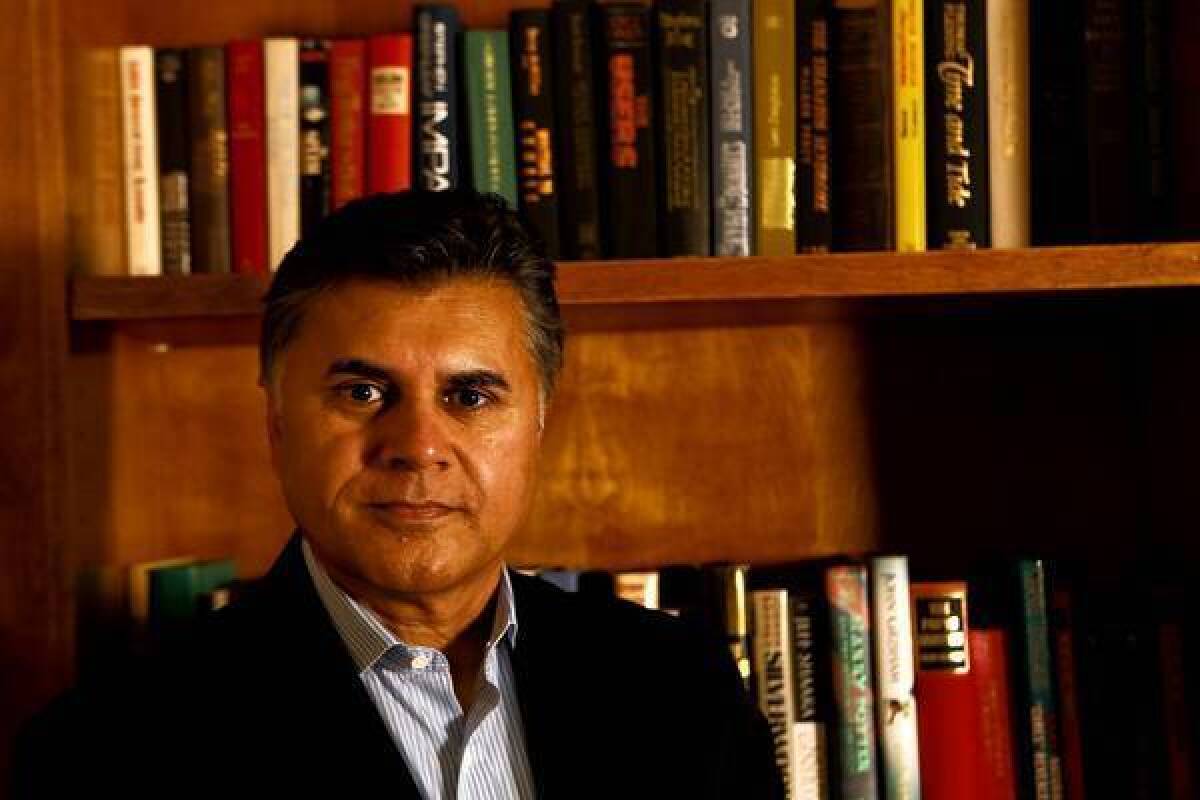How I Made It: Najeeb Ghauri, founder and CEO of NetSol Technologies

- Share via
The gig: Najeeb Ghauri is the founder and chief executive of NetSol Technologies Inc., a Calabasas software company that makes a lot of its money from a program widely used in automobile leasing. Its customers include automakers Mercedes-Benz, Volkswagen, BMW, Nissan and Hyundai. The company also provides consulting and design services to companies worldwide. With more than 1,100 employees, NetSol reported a record $51 million in revenue for its recently completed fiscal year.
An American dream: Born and reared in Pakistan, Ghauri longed to move to the United States to pursue an education and a better life. U.S. officials rejected his application for a student visa six times before relenting in 1977, when Ghauri was 22. He earned a bachelor’s degree at Eastern Illinois University in 1979 and a master’s degree in business administration from Claremont Graduate University in 1981. He spent 15 years in corporate jobs with Unilever, a British company, and Atlantic Richfield Co. before deciding he wanted to start his own business.
The best of both worlds: Although Ghauri was happy living in the United States, he knew there was something his homeland could offer: highly educated software engineers and information technology workers who are paid a fraction of those in the United States. Although it was common for U.S. companies to employ workers from India, Pakistan was an underutilized resource. “These youngsters are the most hidden secret in the world,” he said of the talent available in Pakistan. “I give the full credit for our company’s success to these workers.”
NetSol is born: In 1997, Ghauri launched NetSol. He used money from an initial public stock offering to buy a technology company from his brother in Pakistan. The deal gave him access to a pool of talented workers, who developed the company’s successful NetSol Financial Suite, which is used primarily in the automobile leasing business. In 2004, NetSol opened a 50,000-square-foot technology campus in Lahore, Pakistan, where most of the company’s information technology workers and software engineers are based.
The bubble bursts: “When we ran into the dot-com boom, my stock was at $800 in the spring of 2000. The low was $5 in 2002.” A hedge fund that had lost a lot of money investing in the company tried a hostile takeover in 2001. He lost the company briefly, before winning a court order to regain control. “The best thing was we never lost a customer,” Ghauri said. “You have to believe in what you’re doing and you have to go all out. You don’t just give in. If you think you’re doing the right thing, then you fight.”
A family affair: Ghauri, 58, runs the company with his younger brothers and co-founders, Salim, who lives in Pakistan, and Naeem, who is based in Thailand. “If I didn’t do this with my brothers I wouldn’t be here today,” he said. “I could trust my brothers. We have confidence and trust in each other because we have the same goal: to build a great company.” There are other benefits. “We complement each other. I was good at the finance side, raising money from investors. They bring technology experience,” he said.
What every entrepreneur should know: “You have to have the risk appetite. I walked away from a stable career job. I risked my own savings, I risked my 401(k) to try to make something out of nothing. You have to take a risk. You have to go all the way. You don’t give up.”
Didn’t I see you on TV?: Ghauri and his family appeared in an episode of the television series “The Simple Life,” which featured Paris Hilton and Nicole Richie interacting with U.S. families. In the episode, Ghauri and his family introduced Hilton and Richie to the traditions of Pakistan. “There’s so much talk about fundamentalism and coming from that part of the world. We wanted to showcase we’re an average American family, but we come from Pakistan.”
Personal: He and his wife, Aiesha, live in Westwood. They have two grown sons.
More to Read
Inside the business of entertainment
The Wide Shot brings you news, analysis and insights on everything from streaming wars to production — and what it all means for the future.
You may occasionally receive promotional content from the Los Angeles Times.











